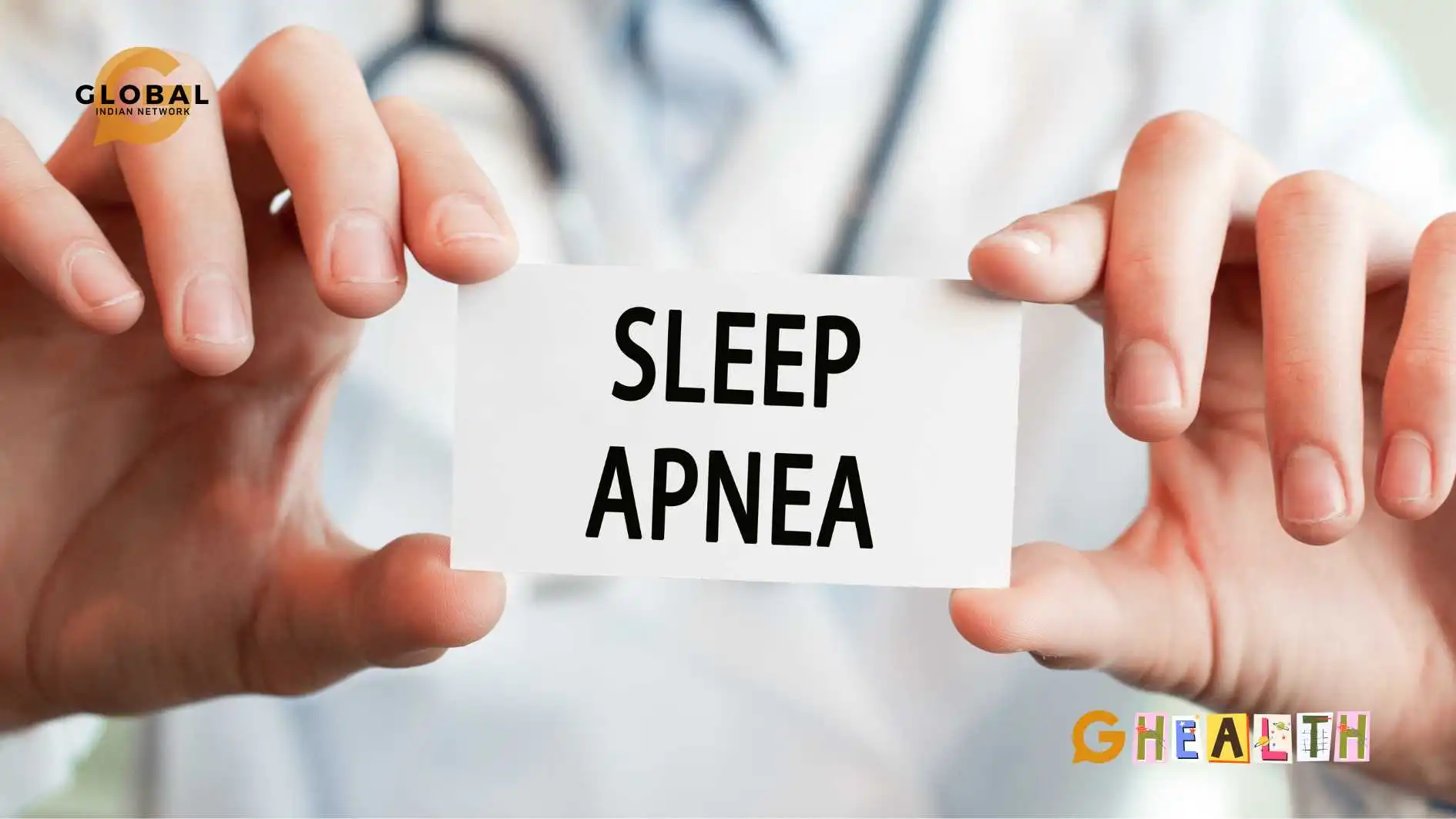Are you finding it hard to have a sound sleep? It could be sleep apnea, a serious sleep disorder that affects millions of people worldwide. Ayurvedic treatments for sleep apnea offer an alternative approach that many find effective and holistic. This article explores various aspects of sleep apnea, its causes, and why Ayurveda might be a better option for treating this condition. We will also delve into the herbs and supplements used in Ayurvedic medicine to manage sleep apnea and discuss preventive measures.
Table of Contents
Understanding Sleep Apnea
Sleep apnea is a disorder where an individual has pauses in breathing or shallow breaths during sleep. These interruptions can last for a few seconds to minutes and often occur multiple times an hour, leading to poor sleep quality and other health issues. There are three main types of sleep apnea:
Types of Sleep Apnea
Understanding the type of sleep apnea one has is crucial for effective treatment. It is categorized into three main types:
Obstructive Sleep Apnea (OSA)
This is the most common type, caused by a blockage of the airway, usually when the soft tissue in the back of the throat collapses during sleep, causing a temporary blockage of the airway. This obstruction leads to pauses in breathing during sleep.
Central Sleep Apnea (CSA)
CSA is a less common form and happens when the brain fails to send the correct signals to the muscles that control breathing. This results in a lack of respiratory effort, leading to interrupted breathing during sleep.
Complex Sleep Apnea Syndrome
Also known as treatment-emergent central sleep apnea, this condition is a combination of both obstructive and central sleep apnea. It can develop when someone being treated for obstructive sleep apnea with CPAP therapy begins to experience symptoms of central sleep apnea.
YOU MIGHT BE INTERESTED IN: The Hidden Dangers of Untreated Sleep Apnoea with Professor Ram Dhillon
Symptoms of Sleep Apnea
Common symptoms include loud snoring, waking up with a dry mouth, morning headaches, and excessive daytime sleepiness.
Causes of Sleep Apnea
Disturbances in sleep cause the following:
Obesity
Excess body weight, especially around the neck, can put pressure on the airway, leading to obstruction during sleep. This can also contribute to insulin resistance and weight gain, creating a cycle that exacerbates sleep apnea.
Genetic Factors
A family history of sleep apnea can increase the risk of developing the condition.
Age
Sleep apnea is more common in older adults, although it can occur at any age.
Gender
Men are more likely to suffer from sleep apnea than women, although the risk for women increases after menopause.
Lifestyle Factors
Smoking, alcohol consumption, and the use of sedatives can relax the muscles in the throat, increasing the likelihood of airway obstruction.
Medical Conditions
Certain conditions, such as hypertension, diabetes, heart disease, and chronic nasal congestion, can also contribute to the development of sleep apnea.
What is the Most Successful Treatment for Sleep Apnea?
Conventional treatments for the improvement of sleep quality are varied, and the most successful one often depends on the severity of the condition and the specific needs of the patient.
Continuous Positive Airway Pressure (CPAP)
CPAP therapy involves wearing a mask over the nose and/or mouth while sleeping. The mask is connected to a machine that delivers a continuous stream of air, keeping the airway open and maintaining optimal oxygen levels.
Oral Appliances
These devices are designed to keep the throat open by bringing the jaw forward, which can be particularly effective for mild to moderate obstructive sleep apnea.
Surgery
Surgical options, such as Uvulopalatopharyngoplasty (UPPP) or mandibular advancement surgery, are considered when other treatments fail. These procedures aim to remove or reduce the tissue obstructing the airway.
Lifestyle Changes
Weight loss, quitting smoking, and avoiding alcohol can significantly improve sleep apnea symptoms.
Ayurvedic Treatments
Ayurveda offers a natural and holistic approach to improving the quality and quantity of sleep. This ancient Indian medical system focuses on balancing the body’s energies and includes herbal remedies, dietary changes, and lifestyle adjustments.
Why is Ayurveda Better for Treating Sleep Apnea?
The National Library of Medicine highlights how Ayurveda can effectively address metabolic disorders by targeting gut-lung endocrinal pathways and enhancing metabolic power (Agni). This integrative approach underscores the potential of Ayurvedic principles in treating complex health conditions like sleep apnea and associated metabolic disturbances.
This makes Ayurveda better for treating sleep apnea due to its holistic approach. Unlike conventional treatments that often focus solely on symptom management, Ayurveda aims to address the root causes of the disorder.
Holistic Approach
Ayurveda treats the whole person, considering physical, mental, and spiritual health. This comprehensive approach can lead to more profound and lasting improvements in quality of life.
Natural Remedies
Ayurvedic treatments rely on natural herbs and practices, reducing the risk of side effects associated with pharmaceutical drugs and invasive procedures.
Personalized Treatment
Ayurveda recognizes that each person is unique and provides personalized treatment plans based on individual constitution (Prakriti) and imbalances (Vikriti). For instance, the approach may vary depending on whether the patient has a dominant Vata dosha or Kapha dosha.
Long-term Benefits
By promoting overall well-being and balance, Ayurvedic treatments can lead to sustained health benefits beyond just alleviating sleep apnea symptoms.
What are the Herbs Used in Ayurvedic Treatment for Sleep Apnea?
Several herbs are commonly used in Ayurvedic medicine, which help in the treatment of sleep disorders. These herbs help in various ways, from reducing inflammation to promoting relaxation and improving respiratory health.
Brahmi (Bacopa Monnieri)
Brahmi is known for its calming properties and is used to reduce stress and anxiety, which can improve sleep quality.
Ashwagandha (Withania Somnifera)
Ashwagandha helps in managing stress and promoting relaxation, making it easier to fall and stay asleep.
Shankhpushpi (Convolvulus Pluricaulis)
This potent herb is used to calm severe headaches and stress that are experienced in instances of sleep apnea to improve mental clarity, which can aid in better sleep.
Tagara (Valeriana Wallichii)
Tagara has sedative properties and is often used to induce deep sleep to treat insomnia and other sleep disorders.
Jatamansi (Nardostachys Jatamansi)
Jatamansi is known for its ability to promote deep, restful sleep at night and is used to treat various sleep disorders.
Tulsi (Ocimum Sanctum)
Tulsi has anti-inflammatory properties and can help in reducing respiratory congestion, making it easier to breathe during sleep. It is particularly beneficial for clearing nasal passages and the nasal cavity.
Ayurvedic Treatments for Sleep Apnea
In addition to herbs and supplements, several Ayurvedic practices can help improve sleep quality and manage sleep apnea.
Pranayama (Breathing Exercises)
Practising pranayama can help improve respiratory function and reduce stress, both of which are beneficial for those with sleep apnea.
Abhyanga (Self-Massage)
Abhyanga involves massaging the body with warm oil, which can promote relaxation and improve sleep quality. Oil massages are a common Ayurvedic therapy used to balance the doshas and enhance overall well-being.
Yoga
Regular practice of yoga can help reduce stress, improve respiratory function, and promote overall well-being.
Meditation
Meditation helps in calming the mind and reducing stress, which can lead to better sleep quality.
Ayurvedic Diet
Following an Ayurvedic diet that balances the body’s doshas (Vata, Pitta, and Kapha) can help in maintaining overall health and improving sleep. A balanced diet tailored to one’s dosha can support better sleep and overall health.
Steam Inhalation for Respiratory Health
Steam inhalation is an effective Ayurvedic practice to clear nasal passages and improve breathing. It involves inhaling steam from hot water infused with essential oils or herbal medicines, helping to reduce nasal congestion and improve the quality of sleep.
What Supplements are Good for Sleep Apnea?
In addition to herbal remedies, certain supplements can support better sleep and help manage symptoms.
Magnesium: Magnesium is known to promote muscle relaxation and improve sleep quality.
Melatonin: Melatonin is a hormone that regulates sleep-wake cycles and can be particularly helpful for those with sleep disturbances.
Omega-3 Fatty Acids: Omega-3s have anti-inflammatory properties and can support overall cardiovascular health, which is essential for those with sleep apnea.
Vitamin D: Adequate levels of vitamin D are essential for respiratory health and can help in managing sleep apnea symptoms.
B Vitamins: B vitamins, particularly B6 and B12, are essential for maintaining healthy nerve function and can help in reducing symptoms of sleep apnea.
Ways to Prevent Sleep Apnea
Preventing sleep apnea involves making lifestyle changes and adopting healthy habits.
Maintain a Healthy Weight: Losing excess weight can reduce the fatty deposits in the neck and throat that can obstruct breathing.
Exercise Regularly: Regular physical activity helps maintain a healthy weight and improves the tone of muscles in the upper airway, which helps in overall respiratory health.
Avoid Alcohol and Smoking: Both alcohol and smoking can relax the muscles in the throat, increasing the risk of airway obstruction.
Sleep on Your Side: Sleeping on your back can cause the tongue and soft tissues to collapse to the back of the throat. Sleeping on your side can help keep the airway open.
Establish a Regular Sleep Schedule: Going to bed and waking up at the same time every day helps regulate the body’s internal clock, promoting better sleep.
Use Humidifiers: Humidifiers add moisture to the air, which can reduce nasal congestion and improve breathing during sleep.
ALSO READ: Can You Optimize Your Wellness? Top Factors Affecting Wellness
Conclusion
Natural Ayurvedic treatments for sleep apnea offer a holistic and effective approach to managing this common sleep disorder. By addressing the root causes and focusing on overall well-being, Ayurveda provides long-term benefits that go beyond symptom management. Incorporating Ayurvedic herbs, supplements, and practices into your routine can help improve sleep quality and reduce the severity of sleep apnea symptoms. As always, it is essential to consult with an Ayurvedic practitioner before starting any new treatment regimen to ensure it is appropriate for your specific needs.
FAQs
What is the best natural remedy for sleep apnea?
The best natural remedy for sleep apnea often includes weight loss through diet, exercise, and positional therapy, such as sleeping on one’s side to keep airways open. Additionally, practising good sleep hygiene and avoiding alcohol and sedatives can help alleviate symptoms.
What to drink for sleep apnea?
For sleep apnea, drinking herbal teas like chamomile or valerian root can promote relaxation and improve sleep quality. Additionally, warm milk with turmeric may help due to its anti-inflammatory properties.
What is the Ayurvedic treatment for sleep apnea?
Ayurvedic treatment for sleep apnea includes using herbal remedies like Ashwagandha and Brahmi, practising yoga and pranayama for respiratory health, and therapies like Abhyanga (oil massage) and Nasya (nasal administration of oils) to improve airway function and overall wellness.










[…] Ayurveda considers sleep to be a primary need of life, which is crucial for all living beings. […]
[…] discuss the best Ayurvedic medicines for high blood […]